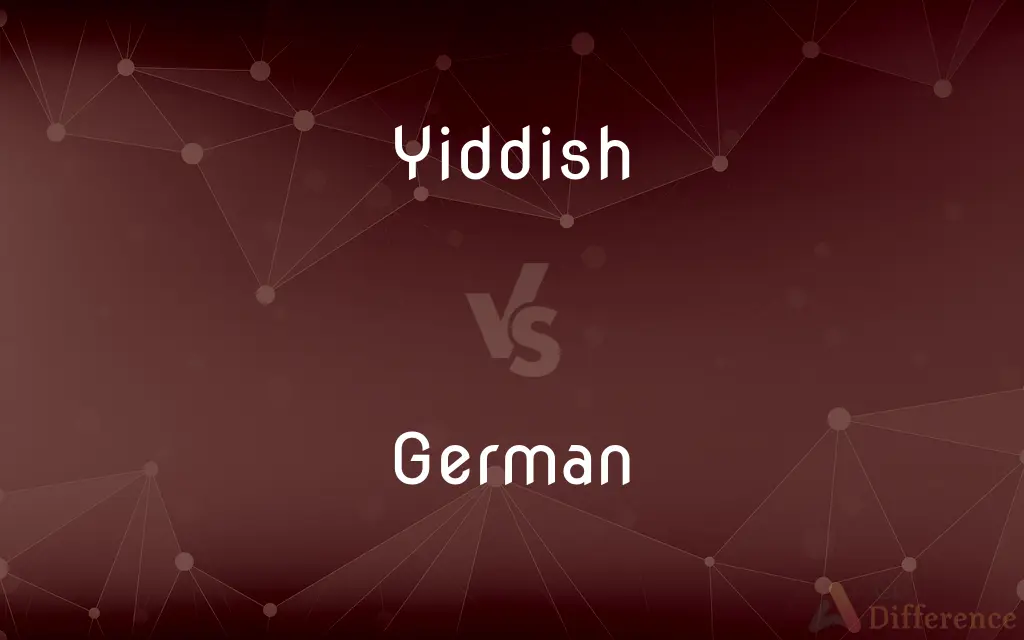Yiddish vs. German — What's the Difference?

Difference Between Yiddish and German
ADVERTISEMENT
Compare with Definitions
Yiddish
Yiddish (ייִדיש, יידיש or אידיש, yidish or idish, pronounced [ˈ(j)ɪdɪʃ], lit. 'Jewish'; ייִדיש-טײַטש, Yidish-Taytsh, lit. ' Judeo-German') is a West Germanic language historically spoken by Ashkenazi Jews. It originated during the 9th century in Central Europe, providing the nascent Ashkenazi community with a High German-based vernacular fused with many elements taken from Hebrew (notably Mishnaic) and to some extent Aramaic; most varieties also have substantial influence from Slavic languages, and the vocabulary contains traces of influence from Romance languages.
German
Of, relating to, or characteristic of Germany or its people.
Yiddish
The language historically of Ashkenazic Jews of Central and Eastern Europe, resulting from a fusion of elements derived principally from medieval German dialects and secondarily from Hebrew and Aramaic, various Slavic languages, and Old French and Old Italian.
German
Of or relating to the German language.
Yiddish
A language used by German and other Jews, being a Middle German dialect developed under Hebrew and Slavic influence. It is written in Hebrew characters.
ADVERTISEMENT
German
A native or inhabitant of Germany.
Yiddish
A dialect of High German including some Hebrew and other words; spoken in Europe as a vernacular by many Jews; written in the Hebrew script
German
A person of German ancestry.
German
Any of the West Germanic languages and dialects spoken or originating in Germany, Austria, or Switzerland, especially standard High German.
German
Having the same mother and father; a full (brother or sister).
German
Being born to one’s blood aunt or uncle, a first (cousin).
German
(obsolete) Closely related, akin.
German
(obsolete) A near relative.
German
An elaborate round dance, often with a waltz movement.
German
A social party at which the german is danced.
German
Nearly related; closely akin.
Wert thou a leopard, thou wert german to the lion.
German
Of or pertaining to Germany.
German
A native or one of the people of Germany.
German
The German language.
German
A round dance, often with a waltz movement, abounding in capriciosly involved figures.
German
A person of German nationality
German
The standard German language; developed historically from West Germanic
German
Of or pertaining to or characteristic of Germany or its people or language;
German philosophers
German universities
German literature
German
Of a more or less German nature; somewhat German;
Germanic peoples
His Germanic nature
Formidable volumes Teutonic in their thoroughness
Share Your Discovery

Previous Comparison
Cruel vs. Wicked
Next Comparison
Edifying vs. Education














































